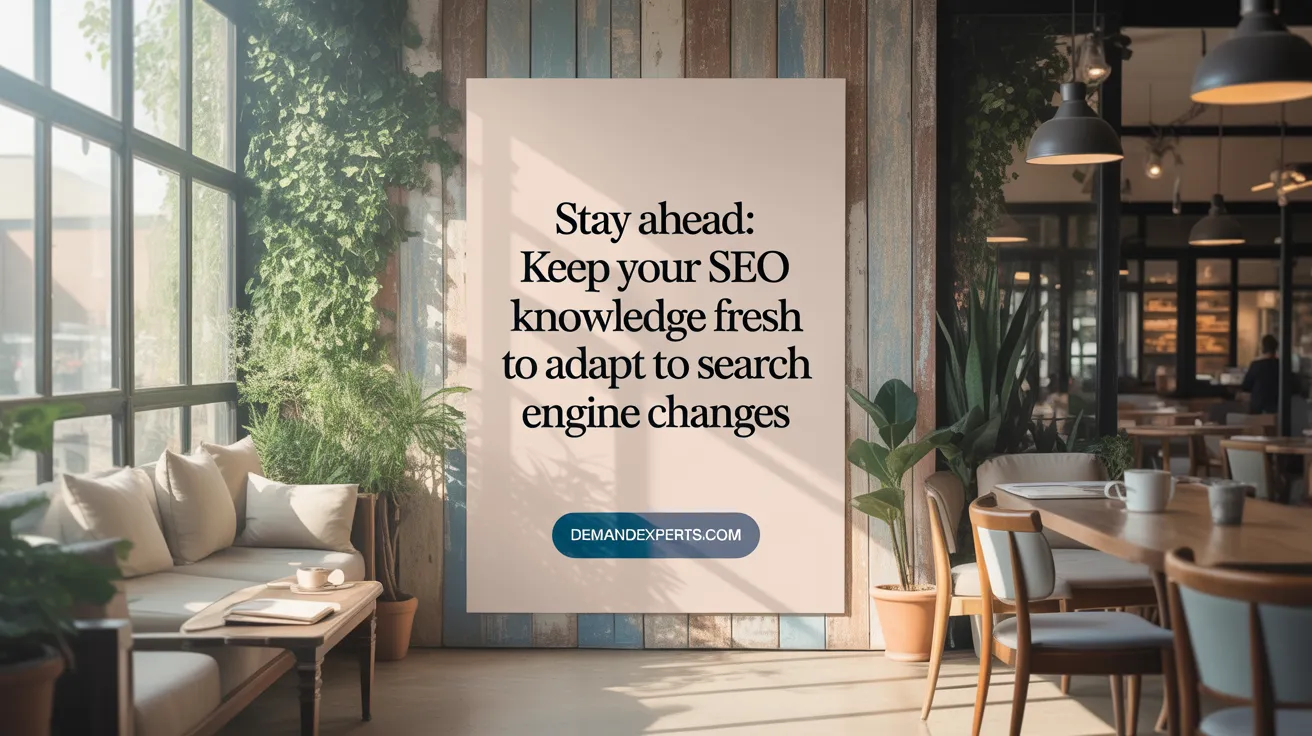Why SEO Myths Persist and Their Impact on Marketing Strategies
SEO remains a cornerstone of digital marketing, yet many marketers cling to outdated or incorrect beliefs that can hinder their success. This article aims to clarify common SEO myths, dispel misconceptions, and guide marketers on how to develop effective, up-to-date SEO strategies. Understanding the evolving nature of SEO and the facts behind the myths empowers marketers to optimize their efforts, improve rankings, and increase conversions sustainably.
Common SEO Myths That Marketers Should Stop Believing

What are some common SEO myths that marketers should stop believing?
Many marketers fall prey to outdated or incorrect beliefs about SEO practices. One prevalent myth is that keyword stuffing—the practice of overloading a webpage with keywords—improves search rankings. In reality, this approach can harm SEO and disrupt user experience, as search engines now prioritize content that is natural, relevant, and valuable.
Another misconception is that meta tags, such as the title tag and meta description, have a significant direct impact on rankings. While they help search engines understand the page quickly and can improve click-through rates, they do not have as much influence on rankings as many think. Properly optimized meta tags support overall SEO but should not be relied upon as the primary ranking factor.
Many believe that social media signals, like shares and likes, or paid advertising efforts, such as Google Ads, directly improve organic search rankings. Current SEO understanding shows this is not the case. These channels can boost visibility and traffic, which might indirectly benefit rankings, but they do not directly influence search engine algorithms.
A common focus is on backlinks—external links pointing to a website. While backlinks are an important ranking factor, the emphasis is shifting from quantity to quality. High-quality, relevant backlinks from trusted sources provide more value for SEO than a large number of low-quality links, which can even harm your site if perceived as spam.
Overall, SEO is a complex, dynamic ecosystem requiring ongoing attention and adaptation. It involves much more than following shortcuts or believing in simple myths. Successful SEO strategies focus on creating relevant, high-value content, ensuring technical excellence, and understanding user intent. Moving away from these misconceptions allows marketers to build sustainable and effective search optimization campaigns.
Misconceptions About Effective SEO Practices and Their Reality

What misconceptions exist about effective SEO practices?
Many believe that SEO is a quick fix or a one-time effort. In truth, SEO is an ongoing process that requires regular updating, such as refining content, improving site speed, and analyzing performance metrics. This misconception can lead to neglecting necessary maintenance, ultimately hindering results.
Another common fallacy is that more backlinks always equal better rankings. While backlinks are important, the focus should be on acquiring high-quality, relevant links from trustworthy sources rather than sheer quantity. Low-quality or spammy backlinks can harm your site’s reputation and rankings.
Similarly, many think stuffing keywords into content is still effective. Modern SEO emphasizes natural and conversational keyword integration that serves user intent, avoiding keyword stuffing which can lead to penalties or ranking drops.
There is also a myth that SEO guarantees immediate top rankings. In reality, it often takes three to six months of consistent effort to see meaningful results, depending on competition and content quality. Businesses should set realistic expectations and focus on long-term growth.
Lastly, many overlook the fact that SEO’s impacts extend beyond just Google rankings. Factors like local SEO, social media synergy, user experience, and structured data also influence overall visibility and success in digital marketing.
The Necessity of Regularly Updating SEO Knowledge

Why is it important for marketers to update their SEO knowledge regularly?
Staying current with SEO best practices is crucial because search engine algorithms are constantly evolving. Google and other search engines frequently update their ranking factors, which means strategies that worked years ago may now be outdated or even harmful.
By keeping up with these changes, marketers can adapt their tactics to remain visible in search results. For example, recent updates have emphasized user experience, quality content, and natural keyword integration rather than keyword stuffing.
Creating fresh, relevant content aligned with current trends and user intent not only improves rankings but also enhances credibility and engagement. Regularly updating existing content with new insights, keywords, and improved optimization techniques can give pages a much-needed boost.
Analytics tools like Google Analytics and Search Console are vital for tracking what content performs well and where improvements are needed. These insights help identify which pages require updates to stay competitive.
Overall, ongoing SEO education and awareness enable marketers to leverage the latest tools, refine their strategies, and provide a better experience for users. Continuous learning helps avoid penalties, stays ahead of competitors, and sustains long-term growth.
How to Distinguish SEO Myths from Facts for Better Strategies

How can marketers distinguish between SEO myths and facts to improve their digital marketing strategies?
Distinguishing between SEO myths and facts is essential for building effective online strategies. The first step is relying on data-driven practices. Analyzing website analytics provides insights into what truly influences performance, such as traffic sources, user behavior, and conversion rates.
Monitoring search engine algorithm updates is also critical. Reputable sources, including industry authorities and official announcements from search engines like Google, help stay informed about recent changes and best practices. Recognizing that SEO is a continuous process, not a one-time setup, prevents reliance on outdated tactics.
Regular technical audits and content updates are necessary to maintain and improve site health and relevance. This systematic approach ensures strategies align with current standards and user expectations.
Setting realistic expectations also plays a crucial role. SEO results typically take several months to materialize, and quick fixes often lead to penalties or short-lived gains. Focusing on measurable KPIs like organic traffic, rankings, and conversions provides a clearer picture of progress.
Additionally, expanding efforts beyond Google to other platforms such as YouTube, TikTok, voice assistants, and local directories can broaden visibility. Even online-only businesses benefit from local SEO tactics, as many searches are region-specific.
Avoiding outdated tactics like keyword stuffing and spammy link schemes is vital. Instead, prioritizing high-quality, relevant content and ethical link-building fosters sustainable growth. By understanding these factors, marketers can filter false claims from credible strategies, ensuring their efforts are both effective and long-lasting.
Authoritative Sources for Reliable SEO Information and Myth Busting

What authoritative sources provide reliable corrections on prevalent SEO misconceptions?
To navigate the complex world of SEO, rely on trusted, authoritative sources that offer accurate insights and corrections to common myths. Google's official Webmaster Blog and guidelines are primary sources, providing direct information from the search engine giant itself. These guidelines clarify best practices and dispel misconceptions about factors like keyword stuffing, backlinks, and meta tags.
Industry-leading websites such as Moz, SEMrush, Ahrefs, and Search Engine Journal are also invaluable. They publish research-based articles, detailed guides, and updates about evolving search algorithms, helping marketers stay informed and avoid outdated tactics.
Expert opinions from recognized figures like John Mueller, a Google Search Advocate, further contribute to understanding how Google’s algorithms evaluate content and rankings. Similarly, Google’s quality raters’ guidelines reveal the principles behind ranking choices, emphasizing user experience and content quality.
Combining insights from these primary sources with recent industry studies and academic research ensures a comprehensive, factual understanding that discourages reliance on myths or outdated practices. Staying updated through these credible channels empowers marketers to implement effective, compliant SEO strategies.
For quick access, search queries like "authoritative SEO sources myth busting" quickly lead to current resources, research articles, and expert insights that continuously refine understanding amid a constantly changing landscape.
Beyond Keywords: The Evolving Elements Influencing SEO Success
Quality and relevance of content over keyword density
Modern SEO emphasizes creating high-quality, relevant content that naturally incorporates keywords. Keyword stuffing is outdated and can lead to penalties. Search engines now prioritize content that genuinely answers user questions and provides value, rather than simply aiming for high keyword placement.
Importance of user experience and technical SEO
Beyond content, technical aspects like page speed, mobile friendliness, and site navigation are crucial. A positive user experience encourages visitors to stay longer and engage more. Technical SEO ensures that search engines can crawl and index your website efficiently, making your high-quality content more discoverable.
Role of backlinks and social media in modern SEO
Backlinks from reputable sources continue to matter, signaling trustworthiness to search engines. Social media doesn't directly impact rankings but significantly affects visibility and traffic. Sharing content and engaging audiences on social channels can generate valuable backlinks and brand awareness, indirectly boosting SEO.
SEO's continuous nature and adapting to changes
SEO is not a one-time task. Algorithms evolve, user behaviors shift, and new platforms emerge. Regular updates, ongoing content refinement, and staying informed about industry changes are essential to maintain and improve search rankings.
Patience and long-term strategic focus
Achieving SEO success requires patience. Results often take three to six months to materialize. A long-term focus on strategy, quality, and continuous effort ensures sustainable growth, rather than relying on short-term tactics that can backfire.
| Aspect | Focus Area | Additional Details |
|---|---|---|
| Content Strategy | Quality over quantity | Well-researched, engaging, and tailored content |
| Technical SEO | User experience | Fast load times, mobile optimization, clear navigation |
| Backlinks and Social Signals | Trust and visibility | High-quality backlinks, active social engagement |
| Adaptability | Keeping up with trends | Regular updates and staying informed |
| Patience | Long-term efforts | Consistent work over months for results |
Small Business SEO: Myths and Realistic Strategies for Growth
Cost-effective SEO strategies for SMEs
Small and medium-sized enterprises (SMEs) do not need huge marketing budgets to succeed online. Strategic, data-driven approaches focused on targeted keywords, local SEO, and quality content can generate significant results without overspending. Investing in a well-optimized website, producing valuable content, and building relevant backlinks often provides the best ROI.
Local SEO relevance for all business types
Local SEO isn't just for small shops; it benefits all businesses that target specific geographic areas. Whether B2B or B2C, optimizing for local keywords, maintaining accurate business listings, and earning local reviews can drive highly relevant traffic and increase conversions.
Strategic social media usage rather than omnipresence
Rather than spreading resources thin across every social media platform, businesses should focus on platforms most relevant to their audience. Consistent, engaging content on selected channels can boost visibility, generate traffic, and indirectly support SEO through increased engagement.
SEO as a long-term investment rather than quick fix
SEO is not instant; it requires patience and ongoing effort. Building authority, optimizing content, enhancing user experience, and earning quality backlinks take time. Sustainable SEO results are achieved through consistent activities over months rather than quick tactics.
Integrating paid ads with organic efforts
Paid advertising like Google Ads or social media ads can complement organic SEO efforts. While paid campaigns provide immediate visibility, they do not impact organic rankings directly. Combining both strategies can lead to broader reach, more leads, and long-term growth.
| Strategy Focus | Benefits | Considerations |
|---|---|---|
| Cost-effective SEO | Maximizes ROI; targets relevant keywords | Requires ongoing content and optimization |
| Local SEO | Draws regional traffic; boosts local conversions | Maintain accurate listings and reviews |
| Focused social media | Builds audience engagement efficiently | Select channels carefully |
| Long-term SEO | Sustainable growth; improves credibility | Needs patience and consistent work |
| Paid and organic | Broadens visibility; supports long-term goals | Balance budget and resources |
Effective small business SEO revolves around realistic expectations, targeted efforts, and balancing organic and paid strategies, ultimately fostering growth without unnecessary expenditure.
Embracing Reality: Effective SEO Requires Knowledge, Patience, and Strategy
Marketers must shed outdated SEO myths to embrace a dynamic and nuanced approach to digital marketing. Understanding that SEO is not about quick fixes like keyword stuffing or blind backlink accumulation, but about creating quality content, enhancing user experience, and continuously adapting to search engine algorithm changes is vital. By relying on authoritative sources, employing data-driven strategies, and combining SEO with other marketing disciplines like social media and paid advertising, marketers can achieve sustainable growth. Ultimately, success in SEO demands patience, education, and a strategic mindset focused on the evolving landscape and real user needs.
References
- SEO Myths Marketers Should Stop Believing | by Hassan Khattak
- Marketing Myths Busted: What Agencies Should Stop Believing in ...
- Top 10 B2B SEO Myths You Should Stop Believing - OrangeOwl
- 7 SEO Myths, Debunked - Prasid Pathak
- Top 7 Digital Marketing Myths You Need to Stop Believing Today
- 8 SEO Myths You Need to Stop Believing
- Top SEO Myths You Should Stop Believing - Vxplore Technologies
- SEO Myths Local Businesses Should Stop Believing
Why SEO Myths Persist and Their Impact on Marketing Strategies
SEO remains a cornerstone of digital marketing, yet many marketers cling to outdated or incorrect beliefs that can hinder their success. This article aims to clarify common SEO myths, dispel misconceptions, and guide marketers on how to develop effective, up-to-date SEO strategies. Understanding the evolving nature of SEO and the facts behind the myths empowers marketers to optimize their efforts, improve rankings, and increase conversions sustainably.
Common SEO Myths That Marketers Should Stop Believing

What are some common SEO myths that marketers should stop believing?
Many marketers fall prey to outdated or incorrect beliefs about SEO practices. One prevalent myth is that keyword stuffing—the practice of overloading a webpage with keywords—improves search rankings. In reality, this approach can harm SEO and disrupt user experience, as search engines now prioritize content that is natural, relevant, and valuable.
Another misconception is that meta tags, such as the title tag and meta description, have a significant direct impact on rankings. While they help search engines understand the page quickly and can improve click-through rates, they do not have as much influence on rankings as many think. Properly optimized meta tags support overall SEO but should not be relied upon as the primary ranking factor.
Many believe that social media signals, like shares and likes, or paid advertising efforts, such as Google Ads, directly improve organic search rankings. Current SEO understanding shows this is not the case. These channels can boost visibility and traffic, which might indirectly benefit rankings, but they do not directly influence search engine algorithms.
A common focus is on backlinks—external links pointing to a website. While backlinks are an important ranking factor, the emphasis is shifting from quantity to quality. High-quality, relevant backlinks from trusted sources provide more value for SEO than a large number of low-quality links, which can even harm your site if perceived as spam.
Overall, SEO is a complex, dynamic ecosystem requiring ongoing attention and adaptation. It involves much more than following shortcuts or believing in simple myths. Successful SEO strategies focus on creating relevant, high-value content, ensuring technical excellence, and understanding user intent. Moving away from these misconceptions allows marketers to build sustainable and effective search optimization campaigns.
Misconceptions About Effective SEO Practices and Their Reality

What misconceptions exist about effective SEO practices?
Many believe that SEO is a quick fix or a one-time effort. In truth, SEO is an ongoing process that requires regular updating, such as refining content, improving site speed, and analyzing performance metrics. This misconception can lead to neglecting necessary maintenance, ultimately hindering results.
Another common fallacy is that more backlinks always equal better rankings. While backlinks are important, the focus should be on acquiring high-quality, relevant links from trustworthy sources rather than sheer quantity. Low-quality or spammy backlinks can harm your site’s reputation and rankings.
Similarly, many think stuffing keywords into content is still effective. Modern SEO emphasizes natural and conversational keyword integration that serves user intent, avoiding keyword stuffing which can lead to penalties or ranking drops.
There is also a myth that SEO guarantees immediate top rankings. In reality, it often takes three to six months of consistent effort to see meaningful results, depending on competition and content quality. Businesses should set realistic expectations and focus on long-term growth.
Lastly, many overlook the fact that SEO’s impacts extend beyond just Google rankings. Factors like local SEO, social media synergy, user experience, and structured data also influence overall visibility and success in digital marketing.
The Necessity of Regularly Updating SEO Knowledge

Why is it important for marketers to update their SEO knowledge regularly?
Staying current with SEO best practices is crucial because search engine algorithms are constantly evolving. Google and other search engines frequently update their ranking factors, which means strategies that worked years ago may now be outdated or even harmful.
By keeping up with these changes, marketers can adapt their tactics to remain visible in search results. For example, recent updates have emphasized user experience, quality content, and natural keyword integration rather than keyword stuffing.
Creating fresh, relevant content aligned with current trends and user intent not only improves rankings but also enhances credibility and engagement. Regularly updating existing content with new insights, keywords, and improved optimization techniques can give pages a much-needed boost.
Analytics tools like Google Analytics and Search Console are vital for tracking what content performs well and where improvements are needed. These insights help identify which pages require updates to stay competitive.
Overall, ongoing SEO education and awareness enable marketers to leverage the latest tools, refine their strategies, and provide a better experience for users. Continuous learning helps avoid penalties, stays ahead of competitors, and sustains long-term growth.
How to Distinguish SEO Myths from Facts for Better Strategies

How can marketers distinguish between SEO myths and facts to improve their digital marketing strategies?
Distinguishing between SEO myths and facts is essential for building effective online strategies. The first step is relying on data-driven practices. Analyzing website analytics provides insights into what truly influences performance, such as traffic sources, user behavior, and conversion rates.
Monitoring search engine algorithm updates is also critical. Reputable sources, including industry authorities and official announcements from search engines like Google, help stay informed about recent changes and best practices. Recognizing that SEO is a continuous process, not a one-time setup, prevents reliance on outdated tactics.
Regular technical audits and content updates are necessary to maintain and improve site health and relevance. This systematic approach ensures strategies align with current standards and user expectations.
Setting realistic expectations also plays a crucial role. SEO results typically take several months to materialize, and quick fixes often lead to penalties or short-lived gains. Focusing on measurable KPIs like organic traffic, rankings, and conversions provides a clearer picture of progress.
Additionally, expanding efforts beyond Google to other platforms such as YouTube, TikTok, voice assistants, and local directories can broaden visibility. Even online-only businesses benefit from local SEO tactics, as many searches are region-specific.
Avoiding outdated tactics like keyword stuffing and spammy link schemes is vital. Instead, prioritizing high-quality, relevant content and ethical link-building fosters sustainable growth. By understanding these factors, marketers can filter false claims from credible strategies, ensuring their efforts are both effective and long-lasting.
Authoritative Sources for Reliable SEO Information and Myth Busting

What authoritative sources provide reliable corrections on prevalent SEO misconceptions?
To navigate the complex world of SEO, rely on trusted, authoritative sources that offer accurate insights and corrections to common myths. Google's official Webmaster Blog and guidelines are primary sources, providing direct information from the search engine giant itself. These guidelines clarify best practices and dispel misconceptions about factors like keyword stuffing, backlinks, and meta tags.
Industry-leading websites such as Moz, SEMrush, Ahrefs, and Search Engine Journal are also invaluable. They publish research-based articles, detailed guides, and updates about evolving search algorithms, helping marketers stay informed and avoid outdated tactics.
Expert opinions from recognized figures like John Mueller, a Google Search Advocate, further contribute to understanding how Google’s algorithms evaluate content and rankings. Similarly, Google’s quality raters’ guidelines reveal the principles behind ranking choices, emphasizing user experience and content quality.
Combining insights from these primary sources with recent industry studies and academic research ensures a comprehensive, factual understanding that discourages reliance on myths or outdated practices. Staying updated through these credible channels empowers marketers to implement effective, compliant SEO strategies.
For quick access, search queries like "authoritative SEO sources myth busting" quickly lead to current resources, research articles, and expert insights that continuously refine understanding amid a constantly changing landscape.
Beyond Keywords: The Evolving Elements Influencing SEO Success
Quality and relevance of content over keyword density
Modern SEO emphasizes creating high-quality, relevant content that naturally incorporates keywords. Keyword stuffing is outdated and can lead to penalties. Search engines now prioritize content that genuinely answers user questions and provides value, rather than simply aiming for high keyword placement.
Importance of user experience and technical SEO
Beyond content, technical aspects like page speed, mobile friendliness, and site navigation are crucial. A positive user experience encourages visitors to stay longer and engage more. Technical SEO ensures that search engines can crawl and index your website efficiently, making your high-quality content more discoverable.
Role of backlinks and social media in modern SEO
Backlinks from reputable sources continue to matter, signaling trustworthiness to search engines. Social media doesn't directly impact rankings but significantly affects visibility and traffic. Sharing content and engaging audiences on social channels can generate valuable backlinks and brand awareness, indirectly boosting SEO.
SEO's continuous nature and adapting to changes
SEO is not a one-time task. Algorithms evolve, user behaviors shift, and new platforms emerge. Regular updates, ongoing content refinement, and staying informed about industry changes are essential to maintain and improve search rankings.
Patience and long-term strategic focus
Achieving SEO success requires patience. Results often take three to six months to materialize. A long-term focus on strategy, quality, and continuous effort ensures sustainable growth, rather than relying on short-term tactics that can backfire.
| Aspect | Focus Area | Additional Details |
|---|---|---|
| Content Strategy | Quality over quantity | Well-researched, engaging, and tailored content |
| Technical SEO | User experience | Fast load times, mobile optimization, clear navigation |
| Backlinks and Social Signals | Trust and visibility | High-quality backlinks, active social engagement |
| Adaptability | Keeping up with trends | Regular updates and staying informed |
| Patience | Long-term efforts | Consistent work over months for results |
Small Business SEO: Myths and Realistic Strategies for Growth
Cost-effective SEO strategies for SMEs
Small and medium-sized enterprises (SMEs) do not need huge marketing budgets to succeed online. Strategic, data-driven approaches focused on targeted keywords, local SEO, and quality content can generate significant results without overspending. Investing in a well-optimized website, producing valuable content, and building relevant backlinks often provides the best ROI.
Local SEO relevance for all business types
Local SEO isn't just for small shops; it benefits all businesses that target specific geographic areas. Whether B2B or B2C, optimizing for local keywords, maintaining accurate business listings, and earning local reviews can drive highly relevant traffic and increase conversions.
Strategic social media usage rather than omnipresence
Rather than spreading resources thin across every social media platform, businesses should focus on platforms most relevant to their audience. Consistent, engaging content on selected channels can boost visibility, generate traffic, and indirectly support SEO through increased engagement.
SEO as a long-term investment rather than quick fix
SEO is not instant; it requires patience and ongoing effort. Building authority, optimizing content, enhancing user experience, and earning quality backlinks take time. Sustainable SEO results are achieved through consistent activities over months rather than quick tactics.
Integrating paid ads with organic efforts
Paid advertising like Google Ads or social media ads can complement organic SEO efforts. While paid campaigns provide immediate visibility, they do not impact organic rankings directly. Combining both strategies can lead to broader reach, more leads, and long-term growth.
| Strategy Focus | Benefits | Considerations |
|---|---|---|
| Cost-effective SEO | Maximizes ROI; targets relevant keywords | Requires ongoing content and optimization |
| Local SEO | Draws regional traffic; boosts local conversions | Maintain accurate listings and reviews |
| Focused social media | Builds audience engagement efficiently | Select channels carefully |
| Long-term SEO | Sustainable growth; improves credibility | Needs patience and consistent work |
| Paid and organic | Broadens visibility; supports long-term goals | Balance budget and resources |
Effective small business SEO revolves around realistic expectations, targeted efforts, and balancing organic and paid strategies, ultimately fostering growth without unnecessary expenditure.
Embracing Reality: Effective SEO Requires Knowledge, Patience, and Strategy
Marketers must shed outdated SEO myths to embrace a dynamic and nuanced approach to digital marketing. Understanding that SEO is not about quick fixes like keyword stuffing or blind backlink accumulation, but about creating quality content, enhancing user experience, and continuously adapting to search engine algorithm changes is vital. By relying on authoritative sources, employing data-driven strategies, and combining SEO with other marketing disciplines like social media and paid advertising, marketers can achieve sustainable growth. Ultimately, success in SEO demands patience, education, and a strategic mindset focused on the evolving landscape and real user needs.
References
- SEO Myths Marketers Should Stop Believing | by Hassan Khattak
- Marketing Myths Busted: What Agencies Should Stop Believing in ...
- Top 10 B2B SEO Myths You Should Stop Believing - OrangeOwl
- 7 SEO Myths, Debunked - Prasid Pathak
- Top 7 Digital Marketing Myths You Need to Stop Believing Today
- 8 SEO Myths You Need to Stop Believing
- Top SEO Myths You Should Stop Believing - Vxplore Technologies
- SEO Myths Local Businesses Should Stop Believing






